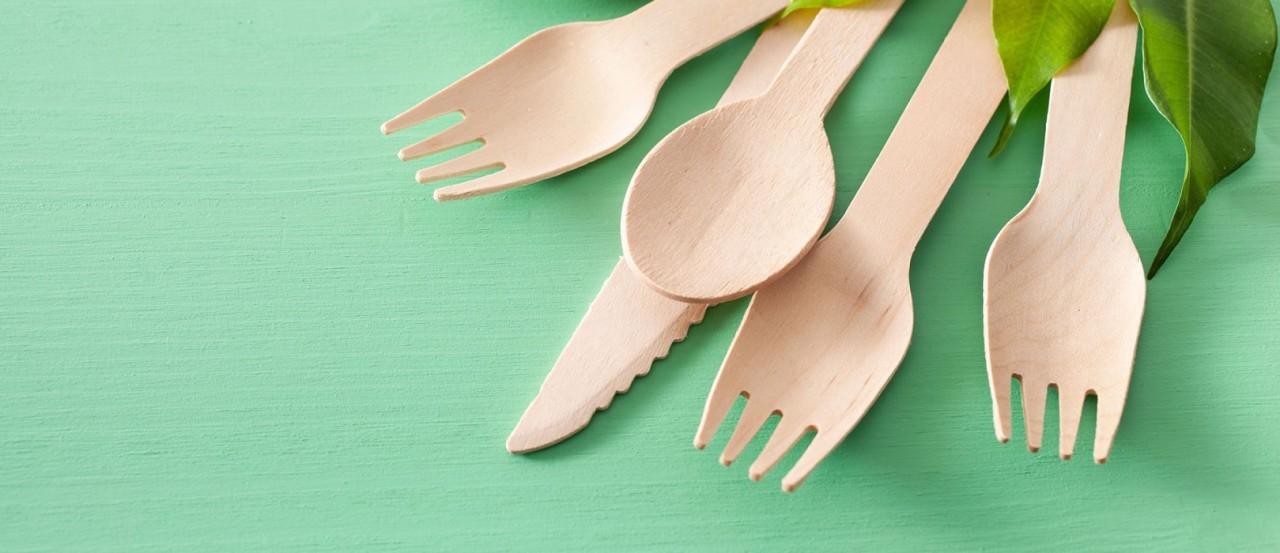In today’s world, environmental awareness is rising, highlighting the critical issue of plastic waste. The pervasive use of single-use plastics has led to overflowing landfills and devastating impacts on marine ecosystems. Amidst these challenges, the demand for sustainable alternatives is urgent.
One increasingly popular solution is disposable wooden cutlery. This blog delves into why disposable wooden cutlery represents a sustainable choice. It examines its environmental benefits, practical advantages, current market trends, and the growing adoption across diverse sectors.
By exploring these facets, we aim to underscore the significance of embracing eco-friendly alternatives like wooden cutlery in mitigating environmental harm while meeting the practical needs of modern dining.
Environmental Benefits of Disposable Wooden Cutlery
Biodegradability: A Natural Breakdown Process
Disposable wooden cutlery offers a crucial advantage over traditional plastic utensils: biodegradability. When disposed of, wooden cutlery breaks down naturally over time, returning to the earth without leaving harmful residues. This natural decomposition process helps mitigate the long-lasting environmental impact associated with plastic waste.
Unlike plastic, which persists in the environment for hundreds of years, wooden utensils contribute to soil health as they decompose. Studies have shown that biodegradable materials like wood play a significant role in reducing plastic waste accumulation in marine environments.(this website)
Renewable Resource: Sustainability in Action
Wood, the primary material used in wooden cutlery, is renewable and can be responsibly sourced. This sustainability aspect contrasts sharply with plastic, derived from non-renewable fossil fuels. By opting for disposable wooden cutlery, consumers and businesses support sustainable forestry practices that ensure the longevity of forest ecosystems.
Reduction in Plastic Waste: A Global Impact
The adoption of disposable wooden cutlery represents a tangible step towards reducing global plastic waste. Each year, millions of tons of plastic utensils are discarded after a single use, contributing significantly to environmental pollution. By choosing biodegradable cutlery made from wood, consumers and businesses alike can contribute to mitigating this environmental burden. This shift is crucial in combating plastic pollution and fostering a cleaner, healthier planet for future generations.
Practical Considerations
Usability and Functionality: Performance Comparison
Disposable wooden cutlery offers robust performance comparable to plastic alternatives. It is sturdy enough to handle a variety of foods, from salads to hot dishes, without compromising on usability. The smooth texture of wood enhances the dining experience, providing a natural feel that aligns with sustainable lifestyles.
Aesthetic Appeal: Natural and Rustic Charm
Beyond functionality, wooden cutlery adds an aesthetic touch to any dining occasion. Its natural grain and texture exude a rustic charm that complements various table settings, whether at a casual picnic or an elegant event. This visual appeal enhances the overall dining experience while conveying a commitment to environmental stewardship.
Handling Hot and Cold Foods: Versatility in Dining
Disposable wooden cutlery demonstrates exceptional versatility in handling both hot and cold foods. Unlike some plastics that may warp or release harmful chemicals when exposed to heat, wooden utensils maintain their integrity and safety. This makes them ideal for a wide range of culinary applications, from ice cream scoops to steaming soups.
Market Trends and Adoption
Growing Popularity: Shift Towards Sustainable Dining
The popularity of disposable wooden cutlery is on the rise globally, driven by increasing awareness of environmental issues and consumer demand for sustainable products. Restaurants, catering services, and event planners are increasingly adopting these eco-friendly alternatives to meet customer expectations and reduce their ecological footprint. This trend reflects a broader societal shift towards embracing sustainable dining practices and minimizing environmental impact.
Consumer Preferences: Influencing Factors
Consumer preferences play a pivotal role in the widespread adoption of compostable containers and other sustainable dining options. Surveys indicate that a significant majority of consumers are willing to pay a premium for environmentally friendly products, underscoring the growing demand for sustainable alternatives. This consumer-driven shift encourages businesses to prioritize sustainability in their offerings, leading to broader market adoption of disposable wooden cutlery and other eco-friendly solutions.
Industry Response: Integrating Sustainability
Across various sectors, businesses are integrating sustainable practices into their operations, with disposable plates and utensils serving as a key initiative. From sourcing raw materials responsibly to implementing efficient waste management strategies, companies are aligning their practices with sustainable development goals. This holistic approach not only benefits the environment but also enhances corporate reputation and consumer trust.
Conclusion
In conclusion, disposable wooden cutlery presents a compelling solution to combating plastic pollution and promoting sustainability in dining. Its biodegradability ensures minimal environmental impact after use, while being sourced from renewable materials underscores its eco-friendliness.
Beyond environmental benefits, wooden cutlery offers practical advantages in usability and aesthetic appeal, enhancing dining experiences across various settings. As we strive for a more sustainable future, embracing these eco-friendly alternatives becomes imperative. Let us advocate for the widespread adoption of disposable wooden cutlery, urging businesses and individuals alike to prioritize responsible choices that contribute to a healthier planet for generations to come.




